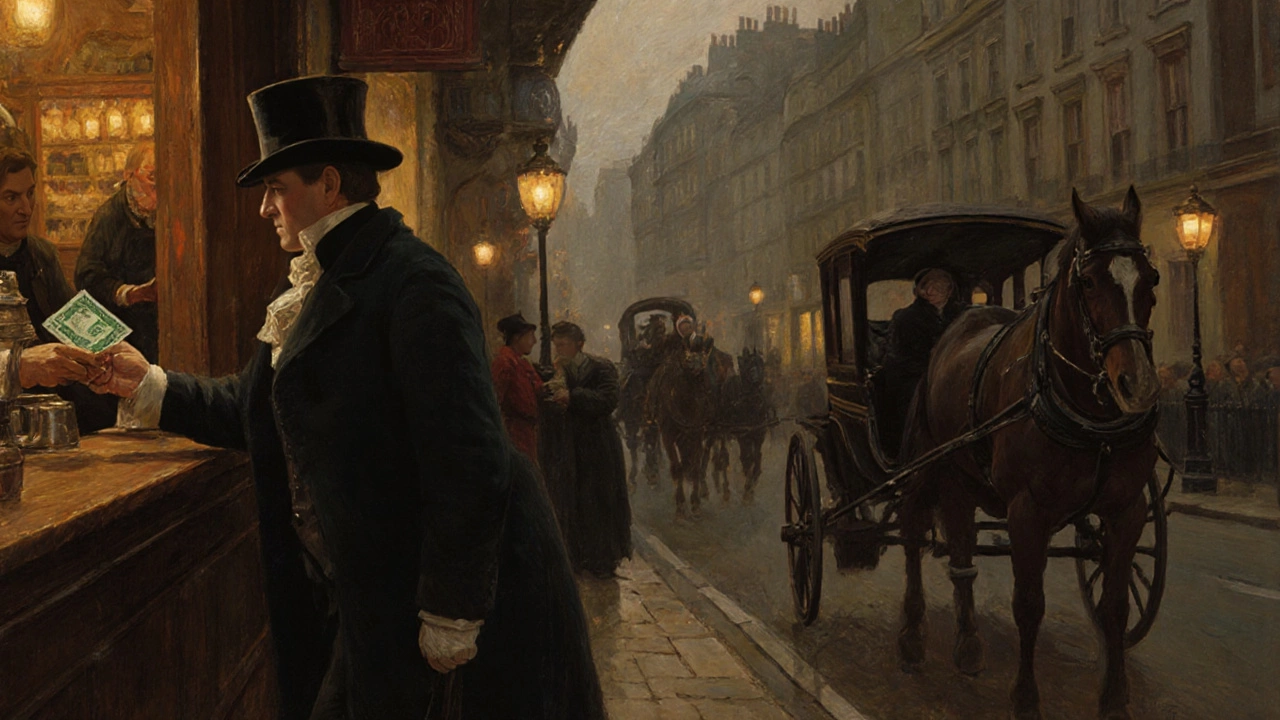British Currency Slang: Talk the Money Like a Brit
When you hear a Brit say they’ve spent a "quid" or earned a "pony", they’re just using the everyday language of money. Knowing these nicknames makes you sound more natural and helps you understand conversations on the high street, in a pub, or online.
Everyday Pound Slang
Quid – The go‑to word for a single pound. It’s as British as fish‑and‑chips, and you’ll hear it in any casual chat: “That coffee costs a quid.”
Bob – Originally meant a shilling before decimalisation, but many still use it for a pound in a nostalgic way. “I’ll give you a bob for that old book.”
Fiver and Tenner – Simple shortcuts for £5 and £10 notes. They’re perfect when you’re counting cash: “Can you spot me a tenner?”
Pony – Slang for £25. The story goes back to the horse‑trading era when a pony cost about that much. You might hear, “He handed over a pony for the concert tickets.”
Ton – Refers to £100. It’s used a lot in betting circles: “He won a ton on the horse race.”
Score – Means £20. It’s less common now but still pops up in older generations: “That’ll be a score, please.”
Older and Regional Terms
Shilling – Before 1971, a shilling was 12 old pence, roughly 5 p in today’s money. Some older folks still say, “That’ll be five shillings,” when they mean a few pounds.
Crown – A seven‑shilling coin worth 35 p in modern value. You might hear it in historical dramas: “Give me a crown for the fare.”
Half‑crown – Was worth two shillings and sixpence, about 12½ p today. It’s mostly a nostalgic term now.
Nicker – Used mainly in the north of England for a pound. Example: “That costs a nicker and a half.”
Spondoolies – A playful, old‑time word for money in general. It’s rarely used now but will earn you a grin: “I need some spondoolies for the market.”
These regional and historical words add color, but they can confuse non‑locals. Stick to the most common slang unless you’re deliberately using a vintage vibe.
Using British currency slang is all about timing. Drop a “quid” or “fiver” in a relaxed setting, but keep it out of formal business emails. If you’re unsure, listen first – most people will naturally switch to the slang they’re comfortable with.
Now you’ve got a toolbox of money nicknames. Next time you’re buying a coffee, saying “That’ll be a quid,” will feel just right. And if you ever need to talk about a big purchase, a “ton” or a “pony” will do the trick without sounding stiff.

Why Is 25 Pounds Called a Pony? Uncovering the British Slang Origin
Discover why a £25 note is called a "pony"-the history, wartime roots, and modern usage of this classic British slang term.
Categories
- Storage (30)
- Bathroom (21)
- Sofas (20)
- Curtains (15)
- Home Decor (12)
- Cushions (12)
- Mirrors (12)
- Bedding (11)
- Kitchenware (11)
- Rugs (10)
Popular Articles



